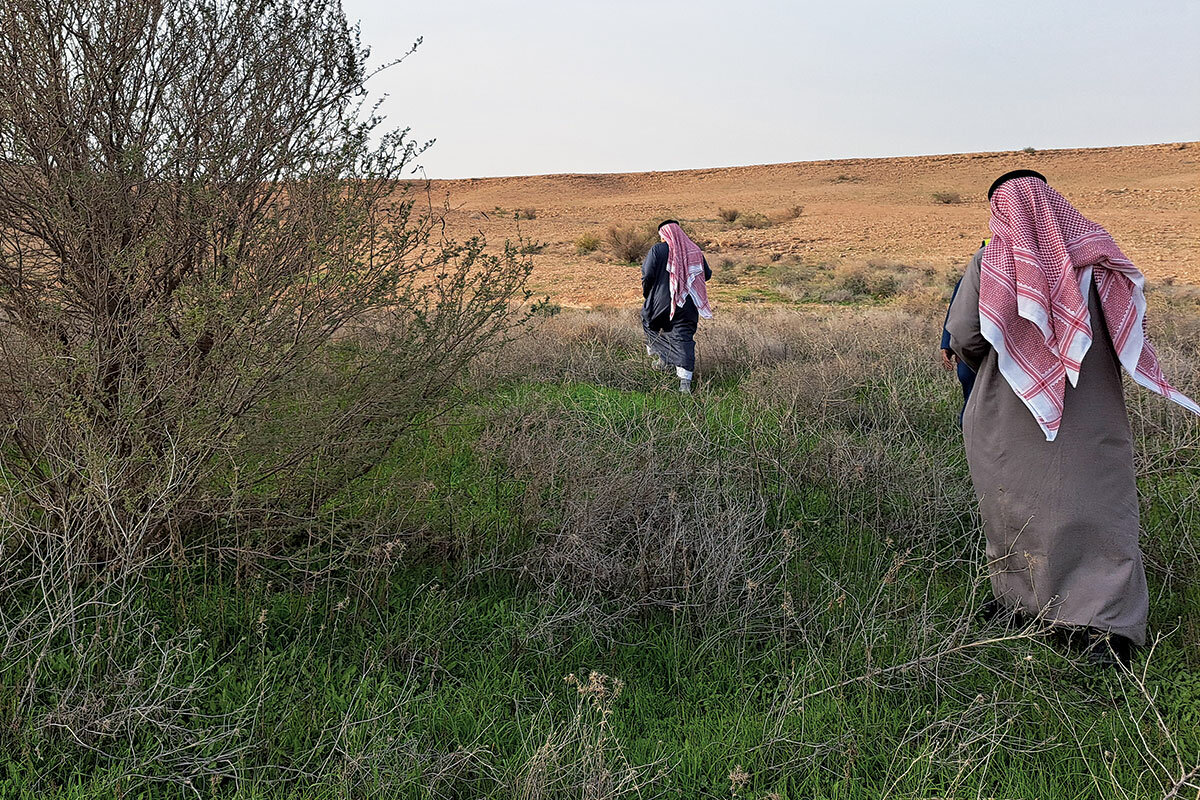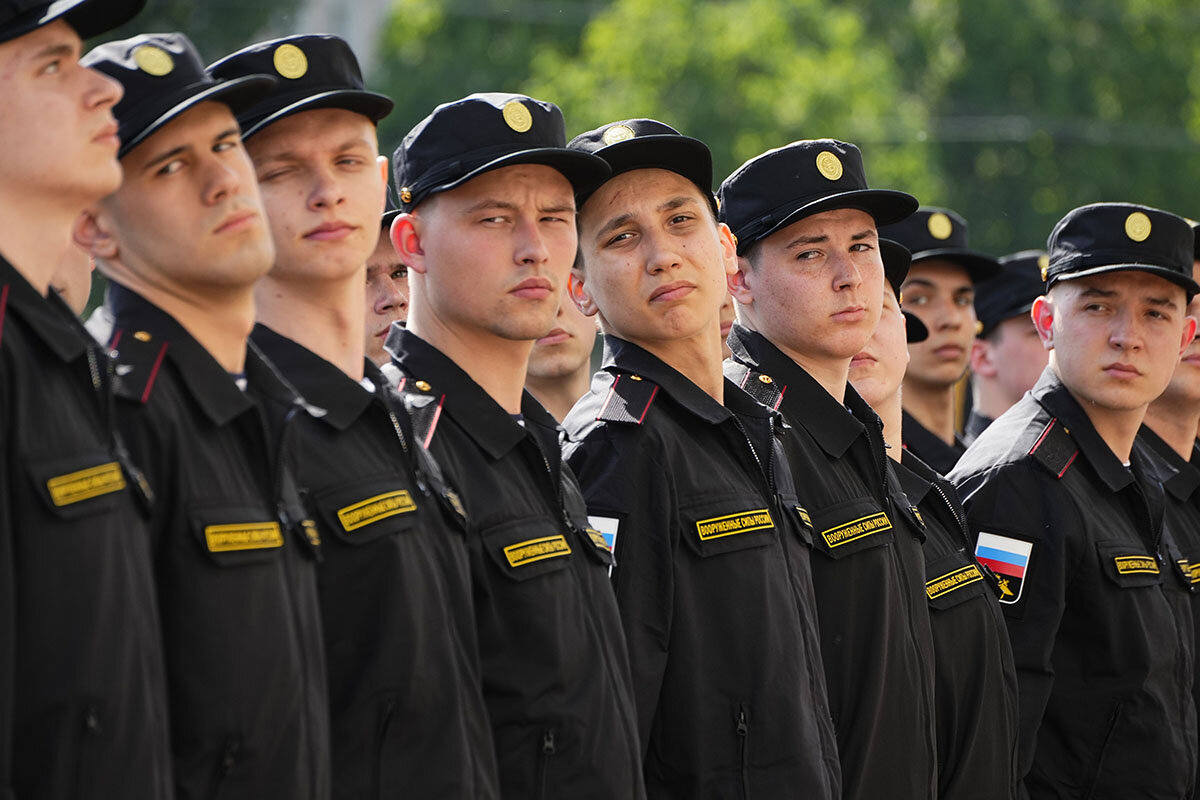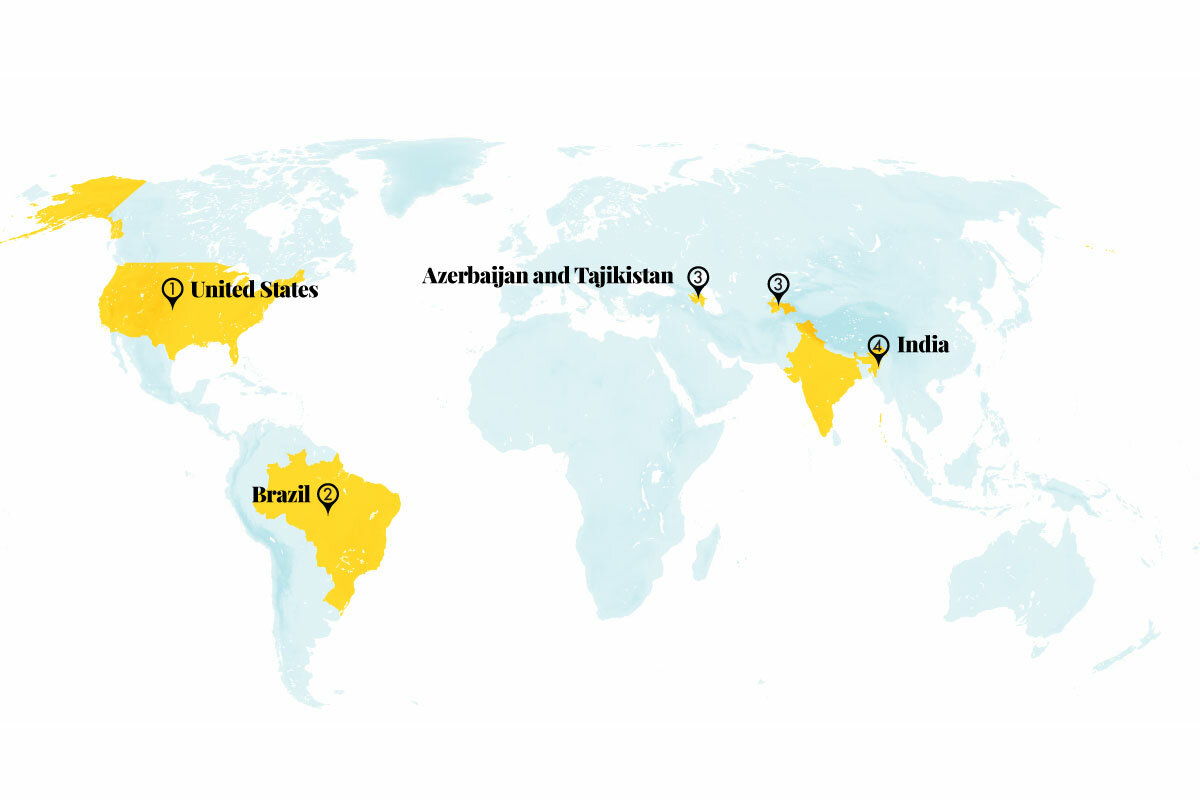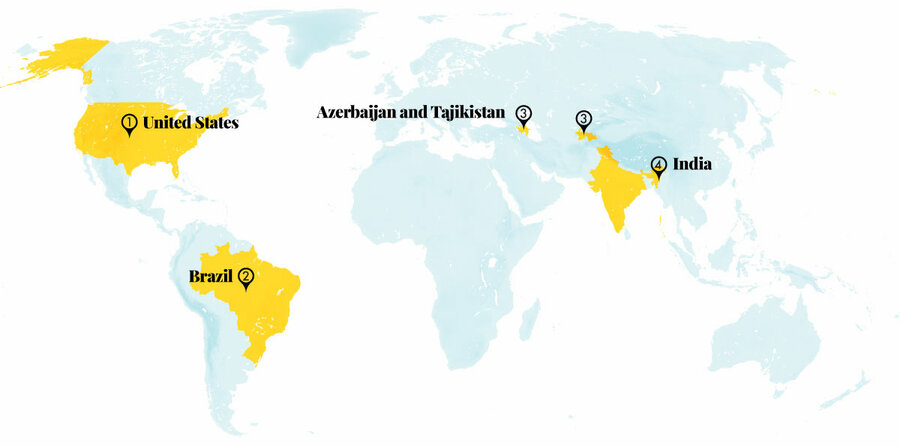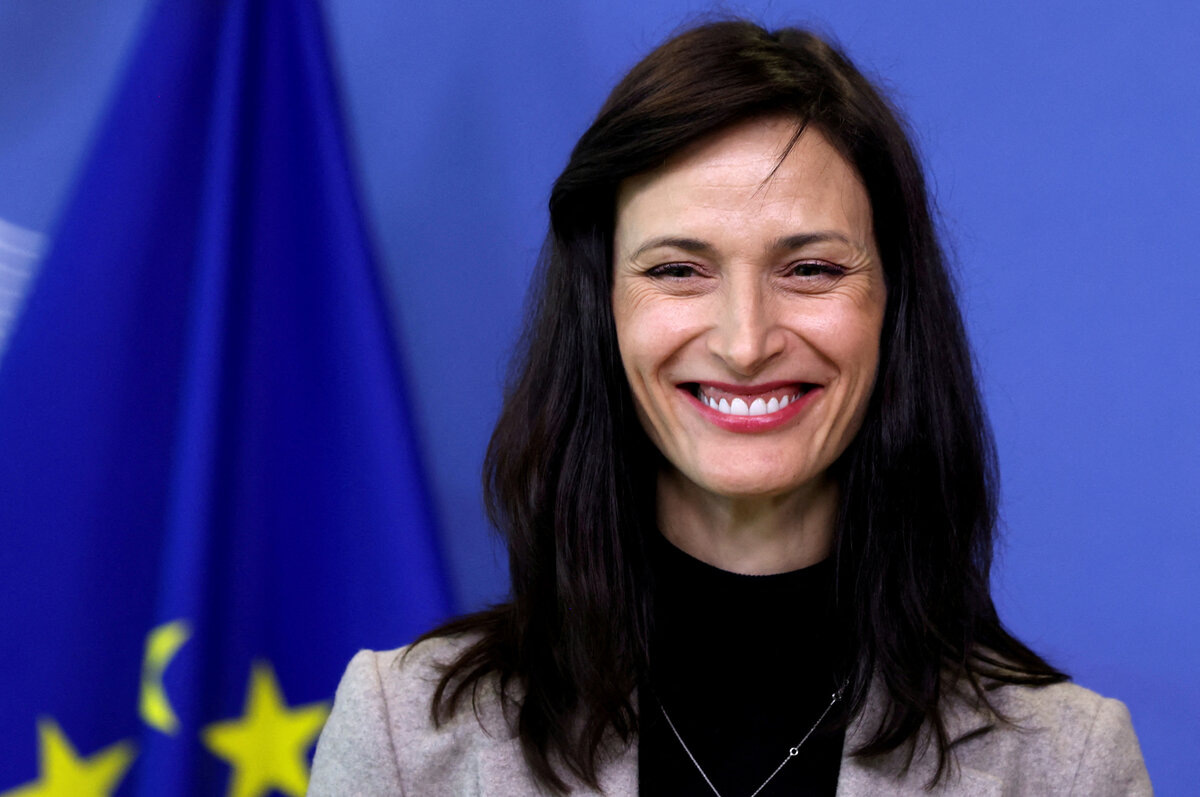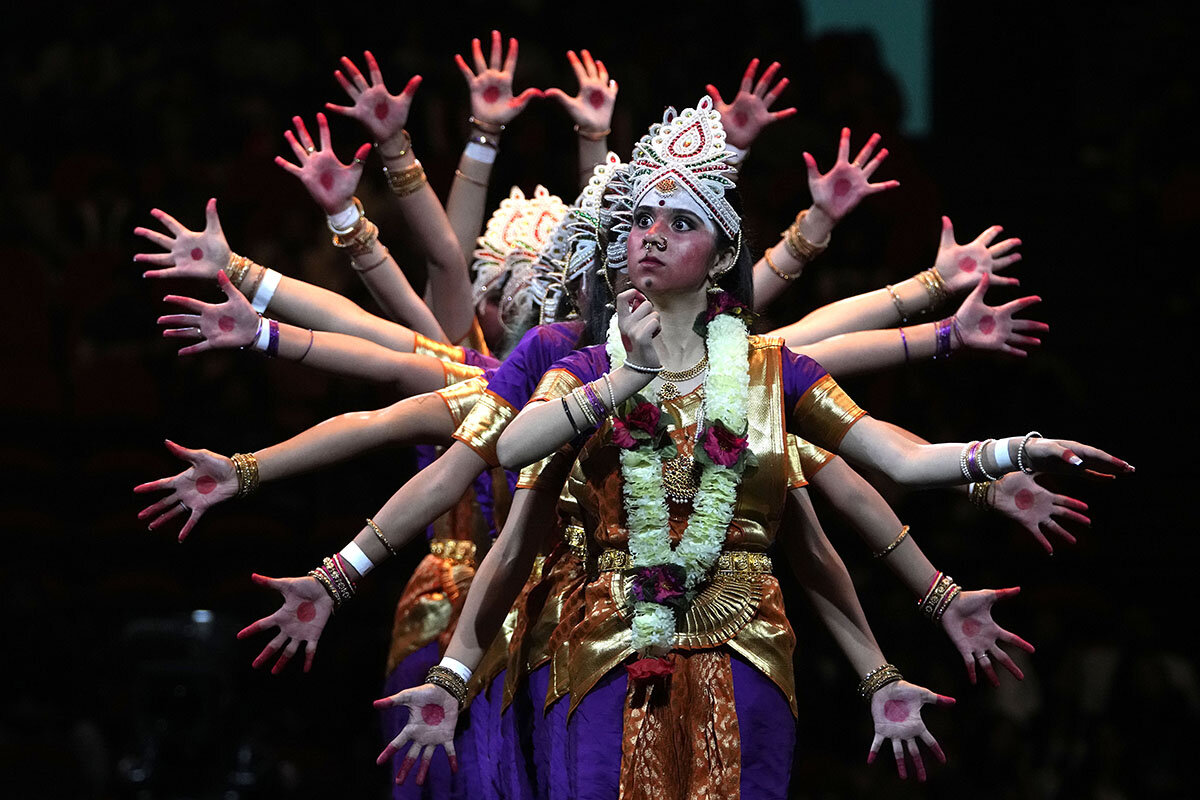The effort to abate climate change has a new player: Saudi Arabia. Yet some doubt the world’s second-largest oil producer will strike the right balance between current needs and future necessities.
Monitor Daily Podcast
- Follow us:
- Apple Podcasts
- Spotify
- RSS Feed
- Download
 Noelle Swan
Noelle Swan
Today’s lead story almost didn’t happen.
When Taylor Luck, the Monitor’s Middle East reporter, heard that Saudi Arabia was attempting to “go green,” he was intrigued – but dubious.
As the world’s second-largest producer of oil, Saudi Arabia is “often seen as the spoiler to progress on climate,” he says. “It was just kind of hard to believe.”
Some of what he found confirmed his skepticism. The kingdom isn’t giving up its hold of the global oil market – far from it. But at the same time, Taylor saw a nation striving to become a global leader in renewable energy technologies.
Some of that investment is intended to offset emissions associated with continued oil production. But the fruits of the Saudis’ research and development in this sector will inform technological progress in other nations as well.
“Maybe the net-zero carbon equation might not be reached,” Taylor says. “But at the end of the day, I could see that there were real positive steps, and that other people could benefit.”
Out in the countryside, Taylor started to see sprigs of hope beginning to blossom as he toured several reforestation efforts working toward the audacious goal of planting 10 billion trees.
“I have to admit that I went in thinking that they were just going to be importing a bunch of trees and planting them and just walking away,” he says, pointing to similarly bold reforestation efforts that have failed elsewhere.
Yet Taylor met “lifelong tree-huggers” who were tapping into the private seed banks and extensive knowledge of the region’s dynamic ecosystems that they had been cultivating for years.
What’s more, it appears to be working.
Taylor visited a dam that had been built just this winter and found that “one little pool of water” had sprouted trees. Birds and butterflies were already fluttering about this new oasis.
“One thing that really struck me was, even in the arid areas, life can be brought back,” Taylor says. “I think that’s an important lesson: There always is a chance to kind of bring life back, and it comes back very quickly.”
Keep an eye out later this week for a conversation with Taylor Luck about his cover story on the “Why We Wrote This” podcast.




